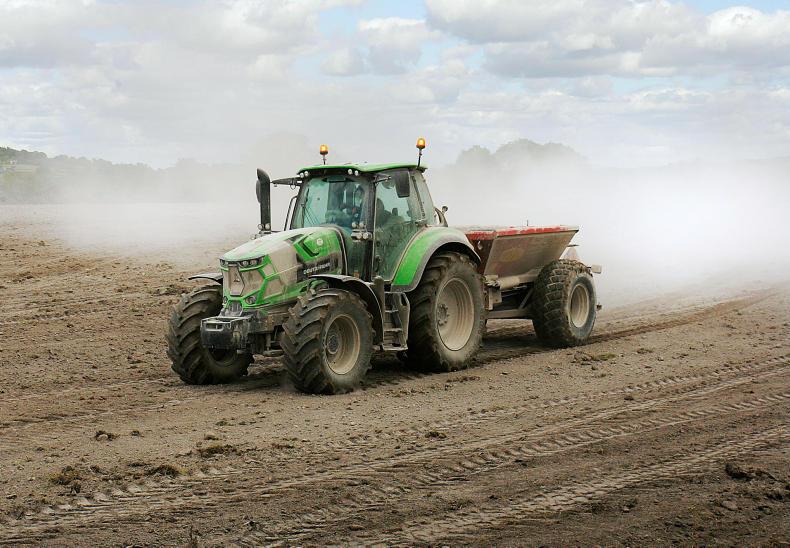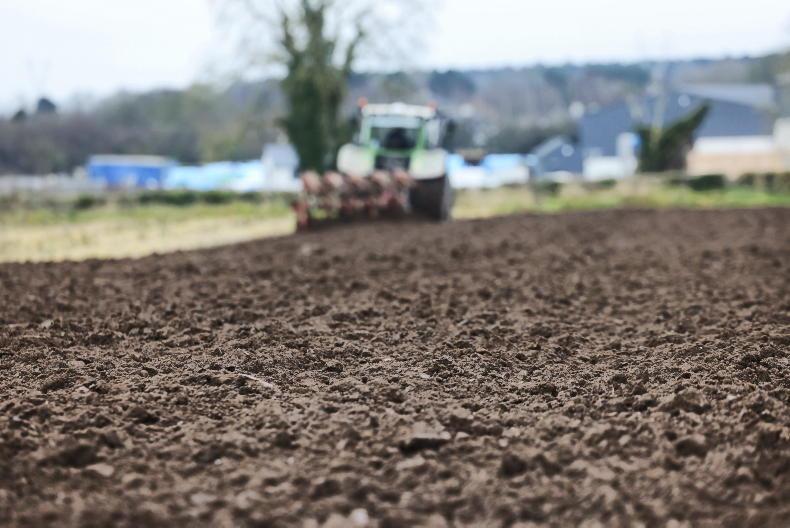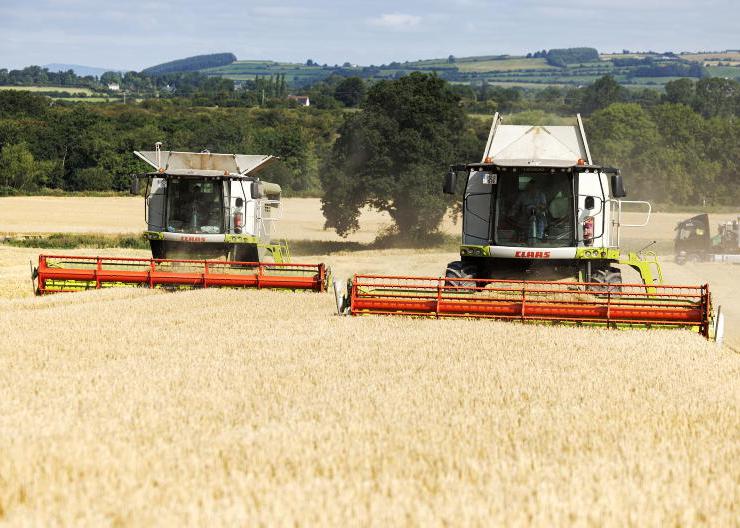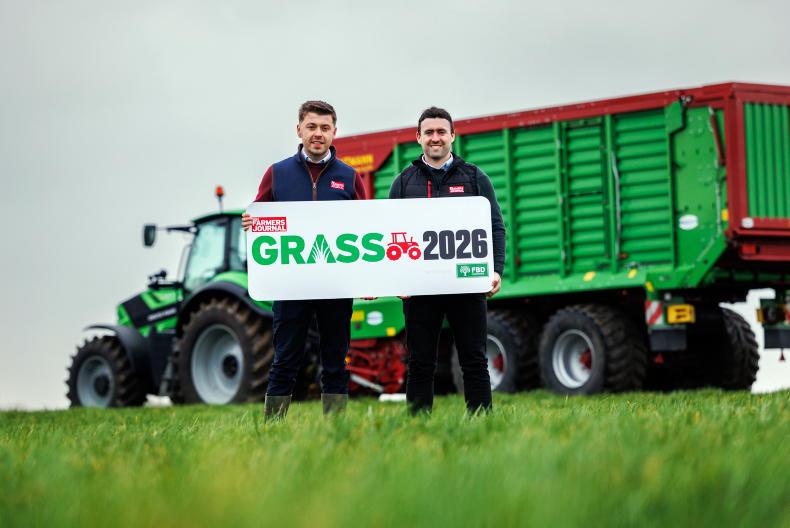Supplies of lime are virtually exhausted, as agri contractors report a big increase in farmer demand for lime this autumn.
With ground conditions favourable, this has allowed farmers to undertake reseeding and push on with winter crops.
Such has been the demand, some lime manufacturers are currently limiting sales to key customers only, as reserves in storage are almost entirely gone.
A number of agri contractors have encountered some difficulties in sourcing lime over the past fortnight, leading them to switch to alternative sources in order to secure sufficient volumes.
The situation has not been helped with reports that one key lime manufacturing plant has reduced production levels having decided to switch lime into other added-value products.
Speaking to the Irish Farmers Journal, Walter Mills of WG Mills and Son in Armagh said it has been an extremely busy backend, which is in contrast with spring when virtually no product moved.
“We have put out 15,000t of lime in September and normally in the whole of October we do around 2,000t. However, last week we put out 5,000t alone. It means our supply is almost exhausted – we would have two days of supply left, at most,” he said.
However, with wet weather forecast this weekend, demand is likely to ease. That could force more cattle inside, but if it did dry up again, there are still customers looking to get lime spread on permanent grassland, said Mills.
Ideal time
With a time lag of three to four months from applying lime until soil pH is corrected, autumn is an ideal time to apply the product.
In the last few years there has been a concerted effort to try to get more farmers to spread lime after usage dropped between 1995 and 2012.
Correcting soil pH is key to ensuring efficient uptake of nutrients by grass and other crops.
Recent figures from AFBI suggest 180,000t is required each year to maintain soil pH at current levels across NI, but 1.2mt needs to be spread to correct the underlying deficit.
Read more
Increased uptake of EFS wider level
NI dairy farms must grow more grass
Supplies of lime are virtually exhausted, as agri contractors report a big increase in farmer demand for lime this autumn.
With ground conditions favourable, this has allowed farmers to undertake reseeding and push on with winter crops.
Such has been the demand, some lime manufacturers are currently limiting sales to key customers only, as reserves in storage are almost entirely gone.
A number of agri contractors have encountered some difficulties in sourcing lime over the past fortnight, leading them to switch to alternative sources in order to secure sufficient volumes.
The situation has not been helped with reports that one key lime manufacturing plant has reduced production levels having decided to switch lime into other added-value products.
Speaking to the Irish Farmers Journal, Walter Mills of WG Mills and Son in Armagh said it has been an extremely busy backend, which is in contrast with spring when virtually no product moved.
“We have put out 15,000t of lime in September and normally in the whole of October we do around 2,000t. However, last week we put out 5,000t alone. It means our supply is almost exhausted – we would have two days of supply left, at most,” he said.
However, with wet weather forecast this weekend, demand is likely to ease. That could force more cattle inside, but if it did dry up again, there are still customers looking to get lime spread on permanent grassland, said Mills.
Ideal time
With a time lag of three to four months from applying lime until soil pH is corrected, autumn is an ideal time to apply the product.
In the last few years there has been a concerted effort to try to get more farmers to spread lime after usage dropped between 1995 and 2012.
Correcting soil pH is key to ensuring efficient uptake of nutrients by grass and other crops.
Recent figures from AFBI suggest 180,000t is required each year to maintain soil pH at current levels across NI, but 1.2mt needs to be spread to correct the underlying deficit.
Read more
Increased uptake of EFS wider level
NI dairy farms must grow more grass










SHARING OPTIONS